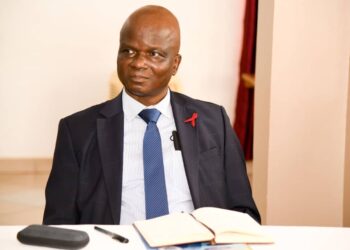By Denis Jjuuko
On Saturday afternoon, a boat sailed from the landing site at Gaba near Kampala on a routine expedition to islands in Kyaggwe County. It was one of many such boat voyages commonly known as boat cruise that take off from the shores of Lake Victoria. They are for revelers and all work without play makes Jack a dull boy, we have always been told.
However, the Saturday boat cruise turned from a routine party to a disaster — albeit the first one in Uganda. The Saturday disaster was the first major boat cruise accident in Uganda. By the time of writing this article, 30 bodies had been retrieved while 26 people survived.
The disaster has become a blame game with some police officers and government officials absolving themselves from their failure to do their job. Blaming the dead is an exercise in futility.
Out to Lunch has outlined the need to utilize Lake Victoria to its full potential to create jobs and boost tourism — one of the country’s biggest foreign exchange earners. I have actually advocated for boat cruises with a caveat on modern safe boats. I am not going to change my mind now though I have heard a couple of friends swear never to go for a boat cruise again. A Ugandan woman is more likely to die while giving birth than having a party of her life on a boat cruise. All the previous water transport accidents haven’t been on boat cruises rather on canoes and boats used for transport and fishing.
But it tells us who we are as a country when we start alleging that the billionaires on the boat cruise were there for some ritual sacrifice. Some died, could they have sacrificed themselves? Yet this disaster gives us hope. We should learn the lessons and move on.
That is why the government officials should focus on developing the marinas, piers and ports from which these boats take off from with proper traffic management systems so people know who traveled on which boat to where. Captains must be qualified with trained lifesavers on board and enough life jackets. The boats must be regularly checked for water worthiness. Routes must be pre-approved and no ship should veer off its agreed route unless they radio for permission due to unforeseen weather changes or mechanical conditions.
The control towers at the ports where captains can report of their progress should be created. This means that if at a particular time a captain is supposed to radio in and they don’t, and efforts to reach them completely fail, the rescue team can be dispatched to follow that particular route to determine what may be the problem. This means that we create a Uganda Ports Authority to work hand in hand with Uganda Police Marines, the Navy, Airforce and private rescue teams. If there is a disaster, the airforce can drop divers and their equipment near the accident zone quickly to rescue and evacuate people in the shortest time possible. Boats don’t sink or capsize within minutes unless they are doing extreme sports like white water rafting. They usually take time and people start to panic and that is how most of them drown. Where rescue teams are quickly dispatched, many lives are saved.
There should be routine monitoring on the lake by the Ports Authority’s law enforcement officers to ensure boats don’t do anything unauthorized.
Today, even boda bodas have GPS trackers so you can trace where they are at anytime. Trackers for boats have been on the market for decades. And they are extremely cheap. The Ports Authority should then ensure some standard. The boat that capsized on Saturday looked like a big improvised canoe! Nobody today who saw the photos is shocked that it capsized. It must have been a single hull boat as well. Catamarans, which sit on two hulls, are much safer as they take longer to sink as the body where people sit is almost suspended. So single hull-boats should probably not be allowed to carry many people on a boat cruise.
The Ports Authority would then divide the lake into zones for easier management. Each zone would be responsible for safety and any other activity on the lake. That would ensure LC1 chairmen of some landing sites aren’t the authority when it comes to matters of water safety. The Ports Authority would hire experts from all over the world to manage the world’s second biggest freshwater body. Boats would pay licenses and fees and a percentage of amount per reveler would be remitted to ensure that the Ports Authority isn’t cash strapped. There would be fines for boat owners to pay for non-compliance.
Basically, the Ports Authority wouldn’t be different from the Civil Aviation Authority (CAA) for air transport. If we allowed the aircraft to operate freely in our skies like the boats are now on the waters, there would be disasters of unimaginable proportions. Let us emulate the air transport to keep our lakes and rivers safe.
The writer is a communication and visibility consultant. djjuuko@gmail.com
Do you have a story in your community or an opinion to share with us: Email us at editorial@watchdoguganda.com











